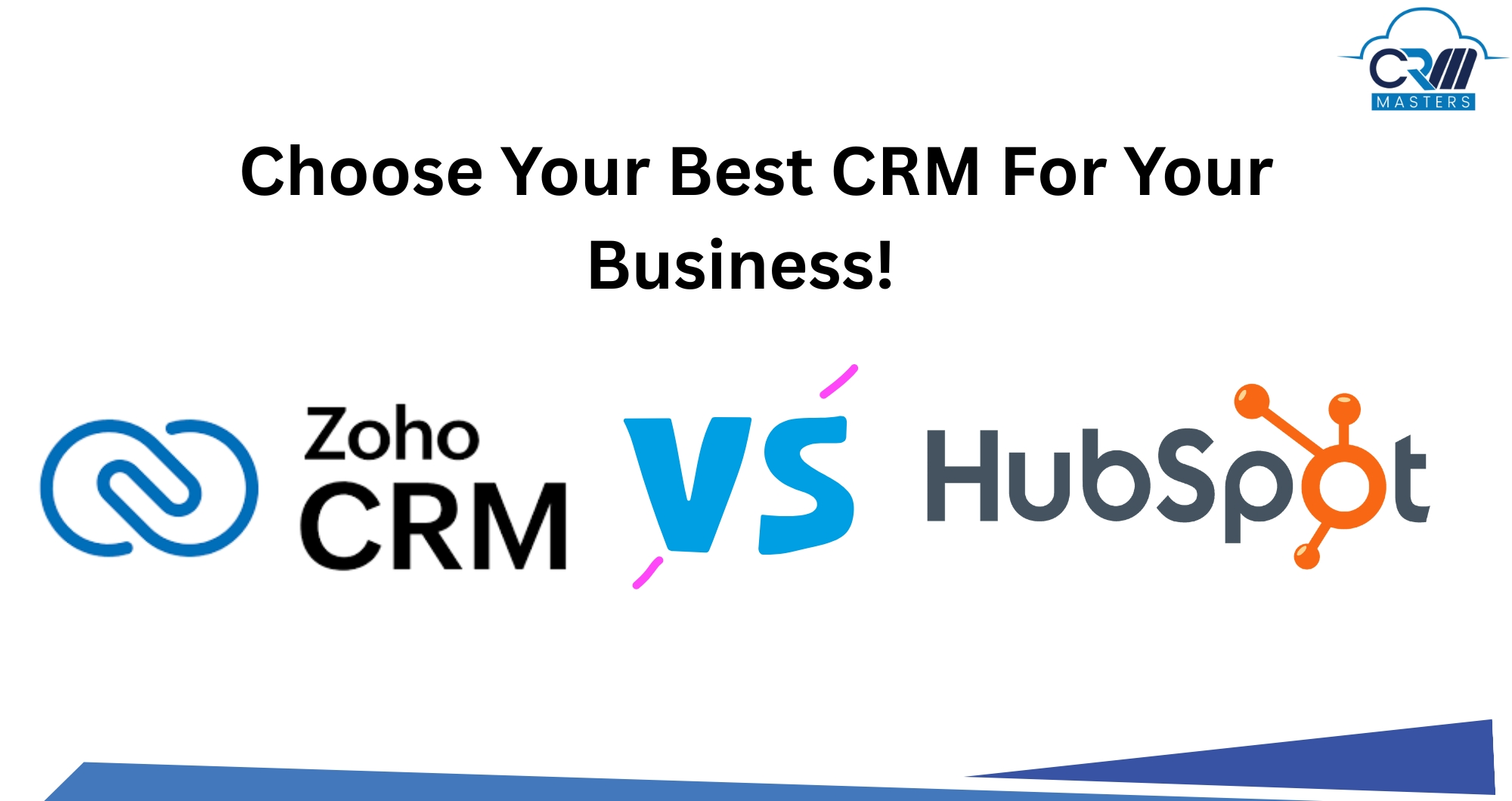
Zoho CRM vs HubSpot: Which CRM Wins with AI in 2025?
When it comes to choosing the proper Customer Relationship Management (CRM) platform, businesses often find themselves torn between two industry leaders: Zoho CRM vs HubSpot. Both offer a suite of powerful tools designed to help companies manage customer relationships more effectively. Still, when it comes to leveraging artificial intelligence (AI) to drive growth and efficiency, each platform takes a slightly different approach.
Whether you’re looking for advanced automation, predictive analytics, or seamless integrations, the right CRM can make all the difference. In this blog, we’ll explore the unique features of Zoho CRM and HubSpot, examining how AI is enhancing their capabilities and helping businesses achieve new heights in 2025.
What Makes AI Important in CRM?
AI in CRM tools helps businesses make data-driven decisions, automate routine tasks, predict sales trends, and personalize customer interactions. AI-powered CRM systems allow businesses to improve lead management, automate repetitive tasks, analyze customer sentiment, and provide insights into customer behavior—all of which contribute to better customer relationships and higher conversion rates.
Both Zoho CRM and HubSpot CRM have integrated AI into their platforms, but they approach it differently. Let’s take a closer look at these two tools and then learn the difference between them.
What is Zoho CRM?
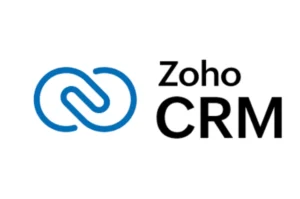
Zoho CRM is an award-winning CRM with an International network of 25,000 organizations in 180 countries that trust Zoho CRM to help them convert more leads, engage with customers, and increase their income. Zoho CRM brings all your sales, marketing, and customer support operations together in one place, streamlining your people, processes, and policies.
What is HubSpot CRM?
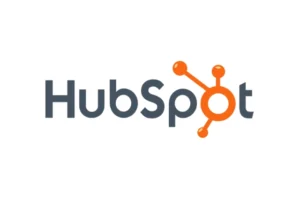
HubSpot CRM is a platform that allows you to keep track of leads and customers at different stages in their journey. HubSpot’s CRM is free and comes with various tools, including live chat, dynamic lists, forms for lead capture, and email marketing.
Zoho CRM Vs HubSpot
Both HubSpot and Zoho CRM offer CRM solutions. Businesses can use these systems to keep track of their relationships, manage leads and identify sales opportunities. They can even get a comprehensive view of your contacts, including notes, important dates, phone numbers, and emails.
There used to be a significant gap between HubSpot vs Zoho CRM, but now the two are very similar in features. HubSpot is an excellent option for large companies, while Zoho CRM has more customisation options for small businesses.
For detailed differences, let’s drive in:
1. AI Features Comparison
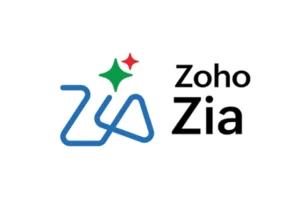
Zoho CRM’s Zia is a robust AI assistant that helps businesses automate processes and gain insights. Its Predictive Sales Analytics forecasts future sales based on historical data, while Lead Scoring prioritizes high-conversion leads. Zia also offers Anomaly Detection to spot unusual sales patterns, and Sentiment Analysis to gauge customer emotions. Additionally, Workflow Automation helps businesses streamline repetitive tasks, increasing efficiency.
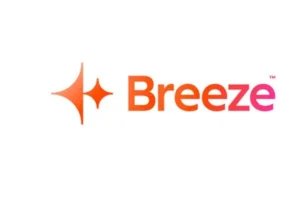
HubSpot’s Breeze AI Suite offers user-friendly features aimed at enhancing customer engagement. Its Predictive Lead Scoring helps identify leads with the highest conversion potential, while AI-powered Chatbots manage customer inquiries and book meetings. HubSpot also excels in Sales Forecasting, providing businesses with insights into future revenue, and Content Personalization that tailors emails and landing pages based on customer behavior. Its Email Automation ensures that the right messages are sent at the right time, boosting engagement.
2. Zoho Pricing Comparison with HubSpot
Zoho CRM offers a competitive pricing structure. It’s free plan supports up to 3 users, and its paid plans start at $14 per user per month. This makes Zoho CRM a highly affordable option for small businesses and startups. As your business grows, you can scale up with additional features by upgrading to higher-tier plans.
While HubSpot CRM offers a free plan, its paid plans are generally more expensive. The Starter plan starts at $23 per user per month, with more advanced features available at higher price points. HubSpot’s higher pricing may be better suited for businesses that require extensive marketing features and have a larger budget.
3. Integration
Zoho CRM offers more than 1,000 integrations, making it highly versatile. It integrates seamlessly with other Zoho products, Google Workspace, Microsoft 365, and many third-party applications. This makes Zoho CRM a great choice for businesses that need a CRM that connects with a wide range of tools.
HubSpot integrates well with popular marketing tools like Gmail, Slack, and social media platforms. However, it does not offer the same level of integration flexibility as Zoho, especially when it comes to third-party business tools.
4. Ease of Use and Adoption
Zoho customers will be charged an additional 20-25% of their annual contract for improved support coverage and responsiveness. Moreover, as the business grows, they will need to pay for this feature to ensure smooth product operation.
In HubSpot, customers are given a seamless user experience optimised for their day-to-day activities, which is why it is even more popular among administrators and end users. Rather than providing a blank slate to your developers, HubSpot is more like an intuitive set of tools that can be continuously adopted by whoever needs that control.
5. Key Features
Zoho and HubSpot both offer a great deal of CRM features you’d expect from a worthy CRM. Contact management, Lead management, Sales forecasting, Email marketing, and order management are all areas where HubSpot and Zoho excel. Where they differ is in APIs, order management, and some integrations.
Regarding customization, Zoho has the edge as HubSpot has fewer features in sales, marketing, and social media. By extending workflow and macro suggestions, taking voice commands to retrieve critical reports, and integrating custom wizards, Zoho can streamline extensive data entry processes.
Even where HubSpot and Zoho align, Zoho pulls the trigger more often. For example, Zoho’s CRM lets you store 100,000 contacts no matter your plan. In addition, Zoho’s intuitive account management feature allows you to keep track of the companies you work with, add notes on contacts, and look at your interactions with them. You can tell if a connection has already reached out to you through social media by using Zoho’s social listening feature.
6. Automation Capabilities
Zoho CRM excels in automation. You can automate a wide range of tasks, such as follow-ups, lead nurturing, and notifications. The platform allows for highly customized workflows, ensuring that every aspect of your sales process is automated according to your business rules. Zoho CRM can automate interactions across various channels, such as email, social media, and phone calls. This allows businesses to engage with customers on the channels they prefer, all while maintaining consistent communication.
While, HubSpot offers marketing automation tools that are ideal for businesses focused on inbound marketing. You can automate tasks such as sending emails, nurturing leads, and scheduling follow-ups. However, HubSpot’s automation features are not as complex or customizable as those of Zoho CRM.
7. Data and Security Administration
Those using Zoho CRM Enterprise or Professional plans can also duplicate their data and import their history for $6 per month. Additionally, Zoho CRM offers two free data backups per month. HubSpot, on the other hand, does not offer free backups or additional backups. Furthermore, the import and dedupe functions are also not available.
Zoho leads in the Roles and Permissions area as well. A Zoho plan can be used to plan organization hierarchies and field-level security for your business system. HubSpot does not have any of these features besides the $48,000 annual premium plan.
8. Customization
Zoho CRM allows businesses to customize almost every aspect of the platform deeply. You can create custom fields, modules, and layouts to tailor the CRM to your business needs. Zoho also offers extensive automation options, allowing you to create custom workflows based on your specific sales processes.
HubSpot CRM is known for its user-friendly interface, making it easy for teams to adopt. However, it offers fewer customization options compared to Zoho CRM. While you can modify some features (like custom fields and properties), it doesn’t provide the same level of flexibility as Zoho.
Also Read:- Zoho CRM vs Monday.com
Conclusion
Both Zoho CRM and HubSpot CRM are powerful platforms, but they cater to different types of businesses.
- Zoho CRM is ideal for businesses that need deep customization, advanced AI features, and a comprehensive platform that integrates with other business tools. It is highly affordable, making it a great choice for small businesses and those with complex sales processes.
- HubSpot CRM is perfect for businesses that prioritize marketing automation and ease of use. Its user-friendly interface, strong marketing features, and simple automation tools make it an excellent choice for businesses focused on inbound marketing.
Ultimately, the right choice between Zoho CRM vs HubSpot CRM depends on your business’s specific needs, budget, and goals. Whether you need advanced AI tools and customization (Zoho CRM) or a simple, marketing-focused platform (HubSpot CRM), both CRMs offer unique features that can help your business succeed in 2025.
Still Confused?
CRM Master’s Infotech is a Zoho Implementation Partner that can help you to choose the right software for your business!
Contact Now to take your business to the next level!












